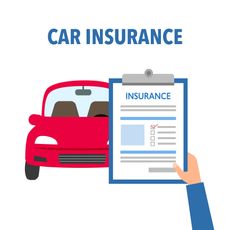Why You Need a Renters Insurance Policy
The average monthly premium for renters insurance is $12 a month for $30,000 in personal property coverage, according to estimates. Here's why it's essential to have coverage.


Last fall, my worst fear as a renter became a reality: A pipe burst in the apartment directly above mine, flooding my apartment. What made the situation even worse was that I got the news when I was out of town visiting family. I panicked, even though I was told the situation was being handled. There were three questions running through my head that weekend: How many of my belongings were destroyed? How long would the repairs take? And what would my renters insurance cover?
What does renter's insurance cover?
Ever since I relocated to the Washington, D.C., area from Michigan, I’ve rented — and had a renters policy (some apartment complexes and landlords require tenants to have one).
In general, a renters policy covers three basics: your liability, personal possessions and living expenses in the event your apartment becomes uninhabitable. The policies typically cover losses from a burglary, vandalism, windstorms and certain types of water damage — which is where things get confusing.

Sign up for Kiplinger’s Free E-Newsletters
Profit and prosper with the best of expert advice on investing, taxes, retirement, personal finance and more - straight to your e-mail.
Profit and prosper with the best of expert advice - straight to your e-mail.
If my apartment had flooded because of a hurricane, I would have been out of luck, because most renters policies don’t cover flooding that comes from outside your building. But a burst pipe falls into the accident category, which is usually covered. To file a claim, I logged on to my Liberty Mutual insurance account from my smartphone. I received text message updates throughout the process from the agent handling my claim.
Premiums and deductibles
As with any other insurance coverage, renters insurance has deductibles and coverage limits that all factor into the cost of the policy and the amount you’ll be reimbursed. My policy, which costs $18.50 a month, covers $15,000 in personal property and provides liability coverage of $100,000 and guest medical coverage of $1,000. My deductible is $500. The average monthly premium for renters insurance is about $12 a month for $30,000 in personal property coverage, $100,000 in liability coverage and a $500 deductible, according to NerdWallet.com. (If you have car insurance, you may be able to get a discount of about 5% by buying your renters insurance from the same company.)
You may want more coverage, especially for personal property, if you have high-end furniture, designer clothes or a lot of tech in your apartment. Before you decide which policy is best for you, take an inventory of your belongings and how much they cost. You can either keep a spreadsheet online in the cloud (which is something I should have done) or use an app such as Encircle to create your list.
Additional coverage for disaster damage and losses
If you’re worried about flooding, review your local flood maps to see if you’re at risk. Go to http://fema.gov/flood-maps and scroll down to the FEMA Flood Map Service center to find your community flood map. If you live in a community that participates in the National Flood Insurance Program, you may be able to purchase a separate flood insurance policy from FEMA to protect your belongings. Policies start at $99 a year for $100,000 of contents-only coverage.
If you’re concerned about other disasters destroying your belongings, you should consider buying a renters insurance policy with a high personal property limit. Coverage amounts start as low as $15,000 and can go up to $500,000. If you have expensive electronics or jewelry, you may want to add an insurance rider (if one is available) because your standard personal property coverage may not be enough to replace them. Coverage with higher personal property limits is usually inexpensive.
Replacement coverage or actual cost coverage
Once you’ve accounted for all your items, you’ll have to decide whether to get replacement coverage or actual cash value coverage. The former, which I have, replaces the items at full cost, and the latter factors in depreciation. Replacement coverage costs about 5% more, but Penny Gusner, at Insurance.com, says it’s worth it.
“You have to compare how much you would get for your used television or computer to how much it would cost to replace it with something new and similar,” says Gusner. You could end up spending more in the end if you go with actual cash value, she says. Some online companies are automatically giving replacement coverage as your only option.
It’s also important to consider any insurance riders that could be available to you. For example, my policy offered additional home computer coverage of $5,000, which I added to protect my expensive MacBook.
In the end, I filed my claim only to discover that the amount of my losses was less than my deductible. I wasn’t surprised, but I was hoping to get something for my troubles. I’ll definitely start keeping an inventory of what I have and make sure it’s up to date.
Bottom line
You might not own your abode, but you own what's in it. If there was a fire, flood or if your home was burgled, you would benefit from having a renter's insurance policy to help cover the costs of replacing your clothes, computer and other valuables. The value of liability coverage can't be underestimated. If a visitor or repair person injured themselves, you could face a personal lawsuit.
If you work from home consider a stand-alone business insurance policy that can offer more robust coverage and with higher coverage limits. This type of policy can provide better coverage limits for business equipment and liability over a typical renter's policy. These policies are good for a business that has visitors coming and going.
Renters can also buy coverage from FEMA to cover damages caused by flooding that comes from the outside. This is wise to consider as regular policies don't cover this type of flood damage. In the case of a Presidentially declared disaster, renters are also eligible for temporary housing assistance and Critical Needs Assistance (CNA), a one-time payment that can help pay for life-saving and life-sustaining items such as prescriptions, food and diapers.
Related Articles

Rivan joined Kiplinger on Leap Day 2016 as a reporter for Kiplinger's Personal Finance magazine. A Michigan native, she graduated from the University of Michigan in 2014 and from there freelanced as a local copy editor and proofreader, and served as a research assistant to a local Detroit journalist. Her work has been featured in the Ann Arbor Observer and Sage Business Researcher. She is currently assistant editor, personal finance at The Washington Post.
- Donna LeValleyPersonal Finance Writer
-
 Stock Market Today: S&P 500, Nasdaq Extend Losing Streaks
Stock Market Today: S&P 500, Nasdaq Extend Losing StreaksThe two indexes have closed lower for five straight sessions.
By Karee Venema Published
-
 Save Over $40 on Audible With Amazon's Latest Deal
Save Over $40 on Audible With Amazon's Latest DealAmazon’s latest promotion lets you score three months of Audible for just $0.99 a month.
By Erin Bendig Published
-
 What Is Comprehensive Coverage and What Does It Cover?
What Is Comprehensive Coverage and What Does It Cover?insurance This grab bag of coverages can protect you and your vehicle from theft, fire and forces of nature.
By Donna LeValley Published
-
 Tips For Open Enrollment 2023
Tips For Open Enrollment 2023Open enrollment will soon be underway, and many employers are shielding workers from hefty increases in health insurance premiums. But it pays to review your options carefully.
By Kimberly Lankford Published
-
 How Much Life Insurance Do You Need?
How Much Life Insurance Do You Need?insurance Instead of relying on rules of thumb, you’re better off taking a systematic approach to figuring your life-insurance needs.
By Kimberly Lankford Published
-
 What Is Liability Insurance and What Does It Cover?
What Is Liability Insurance and What Does It Cover?insurance Liability insurance protects you if you injure someone else or damage their property with your car.
By Donna LeValley Last updated
-
 Want to Feel Better About Life Insurance? Go Digital
Want to Feel Better About Life Insurance? Go DigitalCustomer satisfaction with life insurance and annuity products picks up substantially when participants go digital, J.D. Power survey shows.
By Kathryn Pomroy Published
-
 What Is Collision Insurance and What Does It Cover?
What Is Collision Insurance and What Does It Cover?insurance Collision insurance is often optional, but there are many good reasons to include it in your policy.
By Donna LeValley Published
-
 What Is the 80/20 Rule In Home Insurance?
What Is the 80/20 Rule In Home Insurance?The 80/20 rule in home insurance states that to receive full coverage from their insurance company, homeowners must have coverage costing at least 80% of their home’s total replacement cost value.
By Erin Bendig Published
-
 Do You Really Need Home Insurance?
Do You Really Need Home Insurance?Homeowners insurance is required by most mortgage lenders, and is included in your mortgage payment.
By Seychelle Thomas Published